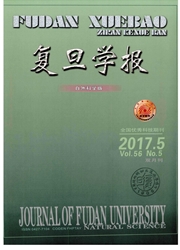

 中文摘要:
中文摘要:
血管紧张素-Ⅱ(AngiotensinⅡ,AngⅡ)是一个重要的血管活性肠肽,对血管的结构和功能有重要的调控作用.研究显示,伴随机体代谢形成的AngⅡ激活后在体内外均可诱导血管平滑肌细胞发生衰老.但AngⅡ究竟通过哪条信号通路引起人血管平滑肌细胞衰老,衰老的细胞在RNA和蛋白质层面上到底发生了哪些改变,仍不清楚.为此,本研究通过转录组测序(RNA-seq),结合实时定量PCR(qPCR)以及Western blot等方法研究AngⅡ诱导人血管平滑肌细胞衰老中的基因表达谱改变及参与的信号通路,发现参与其他细胞衰老的TGF-β信号通路在AngⅡ诱导的人血管平滑肌细胞衰老中受损.研究进一步发现p38-p53-p21信号通路参与调控人血管平滑肌细胞的诱导衰老过程;而p38-p16信号通路则不参与此衰老调控.本研究也提供了证据支持p53的调控也发生在磷酸化水平上.
 英文摘要:
英文摘要:
Angiotensin Ⅱ (Ang Ⅱ ), a crucially bioactive peptide of the renin-angiotensin system(RAS), plays a major role in the regulation of vascular function and structure. Studies have showed that the activation of Ang Ⅱ generated during metabolism can induce the premature senescence of vascular smooth muscle cell(VSMC) in vitro or in vivo. But it is still unclear that which signal pathway involve in the senescence induced by Ang Ⅱ, and what are the changes in RNA and protein of VSMC. We studied gene expression and signal pathway involved in the process of human VSMC(hVSMC) senescence induced by Ang Ⅱ through RNA-seq combined with qPCR and Western blot. The results indicated that TGF-β signal pathway which was responsible for other cell senescence is impaired in hVSMC senescence induced by Ang Ⅱ. p38-p53-p21 signal pathway involved in the senescence regulation induced by AngⅡ. However, p38-p16 signal pathway didn't participated in the hVSMC senescence induced by Ang Ⅱ. We also found the evidence of protein regulation on p53 in phosphorylation process.
 同期刊论文项目
同期刊论文项目
 同项目期刊论文
同项目期刊论文
 期刊信息
期刊信息
